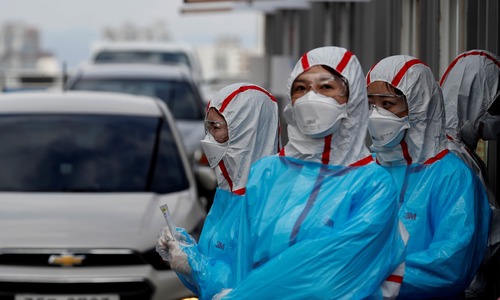UK scientists are to track the spread of the new coronavirus and watch for emerging mutations by using gene sequencing to analyse the strains causing thousands of Covid-19 infections across the country, Britain said on Monday.
Researchers will collect data from samples from infected patients in England, Wales, Scotland and Northern Ireland, the government said in a statement.
At least 281 Britons have died from COVID-19, the disease caused by the new coronavirus that has spread around the world in a pandemic.
"This virus is one of the biggest threats our nation has faced in recent times, and crucial to helping us fight it is understanding how it is spreading," said Sharon Peacock, director of Public Health England’s (PHE) national infection service.
Working in teams across Britain, scientists will map out and analyse the full genetic codes of the Covid-19 samples.
"Genomic sequencing will help us understand Covid-19 and its spread. It can also help guide treatments in the future and see the impact of interventions," Patrick Vallance, the government’s chief scientific adviser, said in the statement.
In epidemics, genome sequencing can help scientists monitor small changes in the virus at a national or international scale to understand how it is spreading and whether different strains are emerging.
"Right now, the important questions we can help answer with sequencing are to help understand the role of international importations into the UK," said Nick Loman, a professor of microbial genomics and bioinformatics at Birmingham University.
The 20 million pound ($23 million) project, called the Covid-19 Genomics UK Consortium, will be co-led by the Wellcome Sanger Institute, which specialises in genetic research, PHE and other public health agencies, as well as the National Health Service and several academic institutions.
"All viruses accumulate mutations over time, some faster than others," said Paul Klenerman, a professor at Oxford University who will be involved in the work. "For Covid-19, this has only just begun — but this emerging variation can be tracked in detail."














































